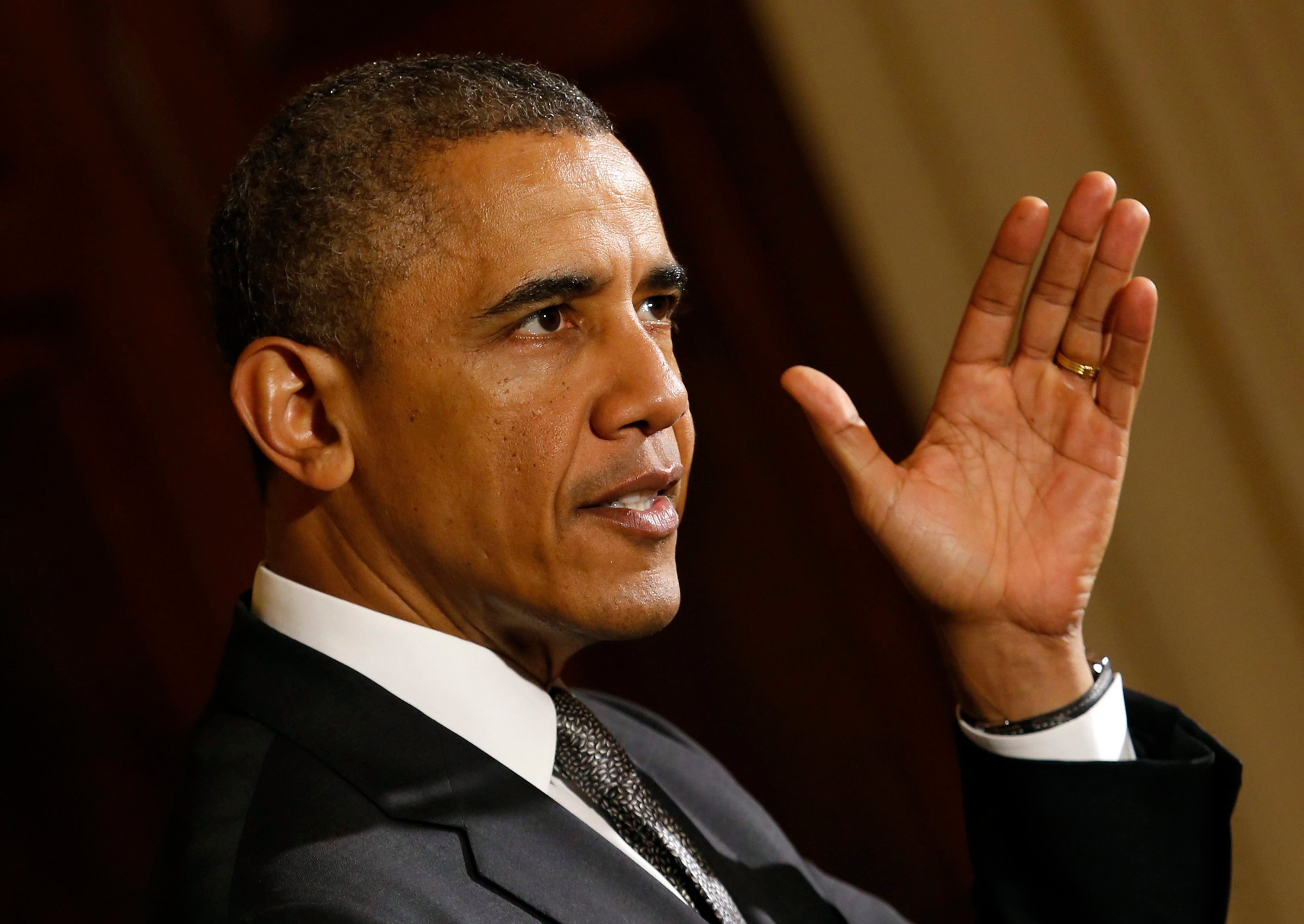
Updated: May 6, 2014, 5:40 p.m. E.T.
The U.S. is preparing to deploy a team of military, law enforcement and hostage negotiators to Nigeria, officials said Tuesday, to help with the ongoing effort to recover more than 250 kidnapped schoolgirls whose plight has captured global attention.
“Obviously it’s a heartbreaking situation, outrageous situation,” President Barack Obama told ABC on Tuesday. “We’ve already sent in a team to Nigeria — they’ve accepted our help through a combination of military, law enforcement, and other agencies who are going in, trying to identify where in fact these girls might be and provide them help,” he added.
Secretary of State John Kerry spoke with Nigerian President Goodluck Jonathan on Tuesday morning to discuss the plan to send a “coordination cell” to Abuja, the Nigerian capital, to assist in locating the girls, who were taken by the Boko Haram militant group in April. The group’s leader recently boasted in a video that “I will sell them in the market.”
State Department spokeswoman Jen Psaki said the team “could provide expertise on intelligence, investigations and hostage negotiations, help facilitate information sharing and provide victim assistance. It would include U.S. military personnel, law-enforcement officials with expertise in investigations and hostage negotiations, as well as officials with expertise in other areas that may be helpful to the Nigerian government in its response.”
Psaki didn’t say how large the team will be, nor would she confirm if the Nigerian government has explicitly accepted the U.S. offer to help.
“I think [Kerry] came away from the call with an understanding that this is something we’d work with the Nigerians to implement,” she said.
White House press secretary Jay Carney said President Obama and Kerry would discuss the ongoing effort to locate the girls in their meeting Tuesday afternoon.
“We are not considering at this point military resources,” Carney said, saying the military personnel being sent are to take on an advisory role for the Nigerian government.
“What I can tell you is that it is certainly Nigeria’s responsibility to maintain the safety and security of its citizens,” Carney added.
More Must-Reads from TIME
- Where Trump 2.0 Will Differ From 1.0
- How Elon Musk Became a Kingmaker
- The Power—And Limits—of Peer Support
- The 100 Must-Read Books of 2024
- Column: If Optimism Feels Ridiculous Now, Try Hope
- The Future of Climate Action Is Trade Policy
- FX’s Say Nothing Is the Must-Watch Political Thriller of 2024
- Merle Bombardieri Is Helping People Make the Baby Decision
Contact us at letters@time.com